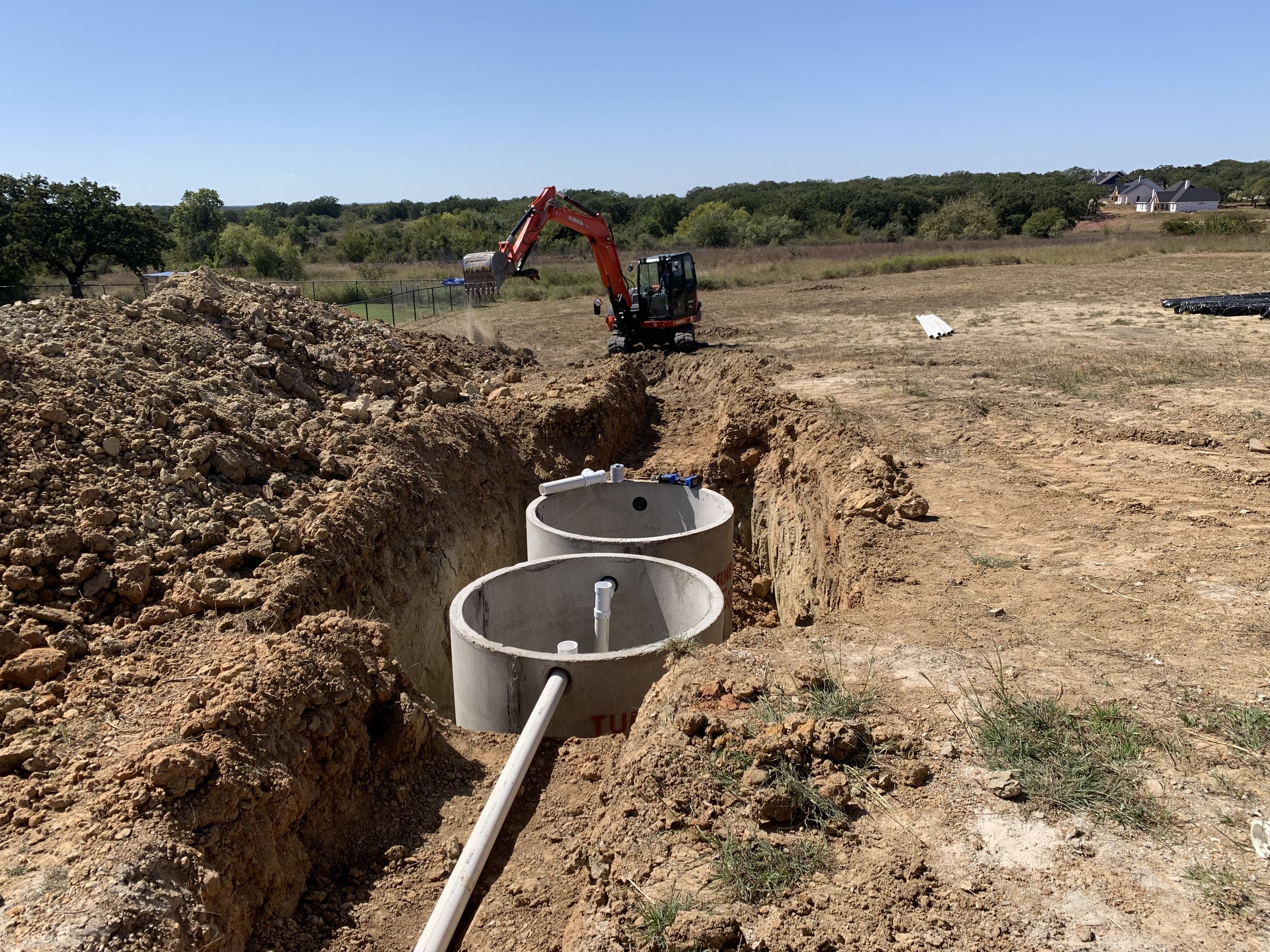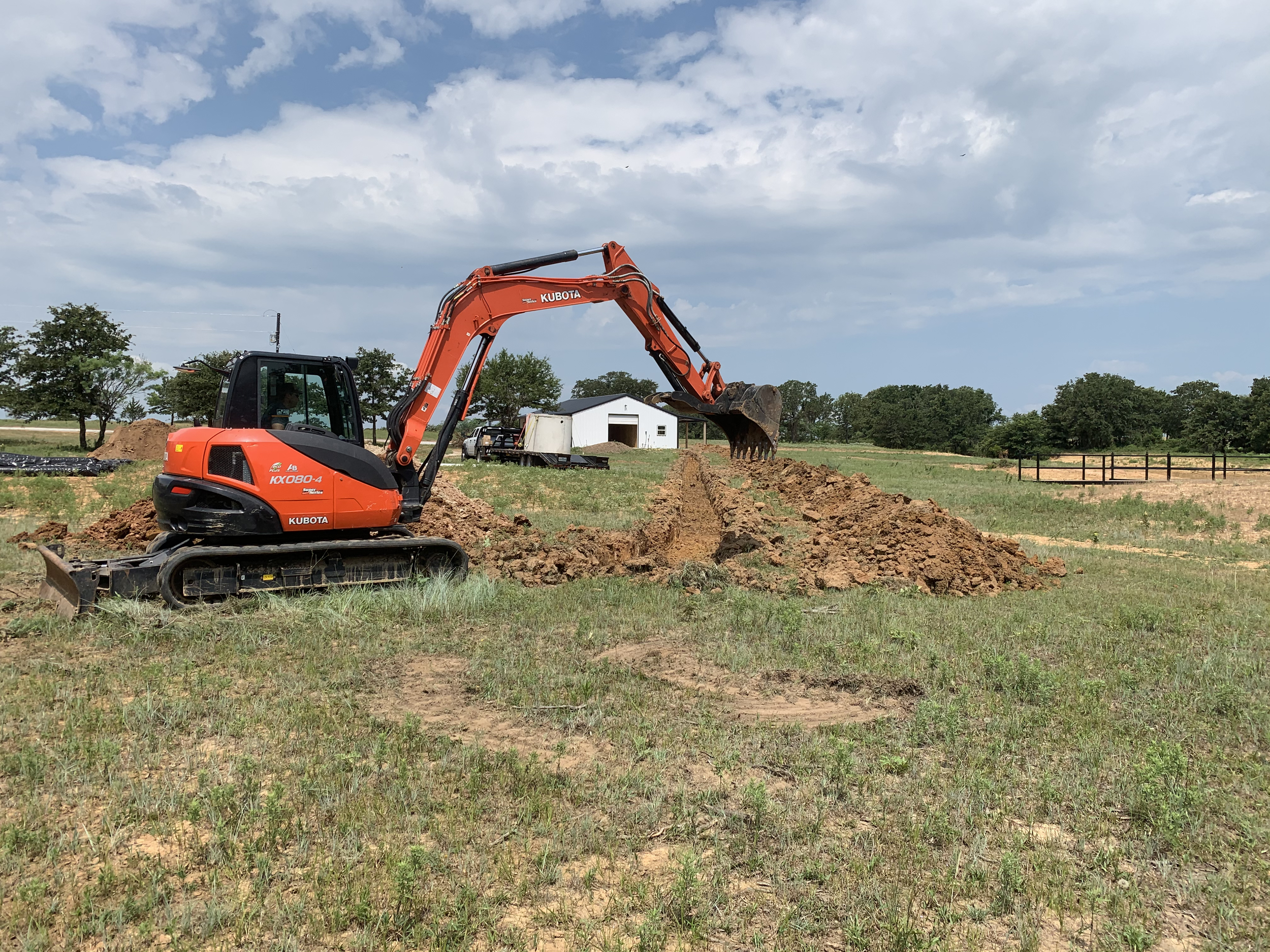
Systems Common In Texas
Conventional System
A decentralized wastewater treatment system consisting of a septic tank and a trench or bed subsurface wastewater infiltration system (drain field). A conventional septic system is typically installed at a single-family home or small business.
The gravel/stone drain field is a design that has existed for decades. The name refers to the construction of the drain field. With this design, effluent is piped from the septic tank to a shallow underground trench of stone or gravel. Geofabric is then placed on top of the trench so sand, dirt, and other contaminants do not enter the clean stone.
Aerobic Treatment Unit
Aerobic Treatment Units (ATUs) use many of the same processes as a municipal sewage plant, but on a smaller scale. An aerobic system injects oxygen into the treatment tank. The additional oxygen increases natural bacterial activity within the system that then provides additional treatment for nutrients in the effluent. Some aerobic systems may also have a pretreatment tank and a final treatment tank including disinfection to further reduce pathogen levels.
The benefits of this system are that it can be used in homes with smaller lots, inadequate soil conditions, in areas where the water table is too high, or for homes close to a surface water body sensitive to contamination by nutrients contained in wastewater effluent. Regular life-time maintenance should be expected for ATUs.
What Is A Septic Tank?
The typical septic tank is a large buried rectangular or cylindrical container made of concrete, fiberglass, or polyethylene. A septic tank's purpose is to separate solids from the wastewater, store and partially decompose as much solid material as possible, while allowing the liquid (or effluent) to go to the drain field.
On-Page Resources
Types of Septic Systems. (2020, October 26). US EPA. https://www.epa.gov/septic/types-septic-systems
The Septic Tank. (n.d.). Co Thurston. Retrieved May 10, 2021, from https://www.co.thurston.wa.us/health/ehoss/tank.html

Need Some Land Alterations?
No Job is Too Small




